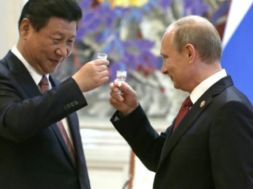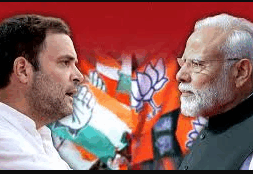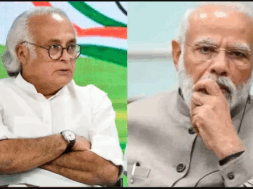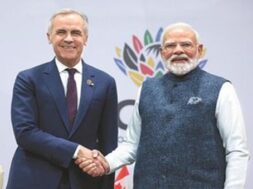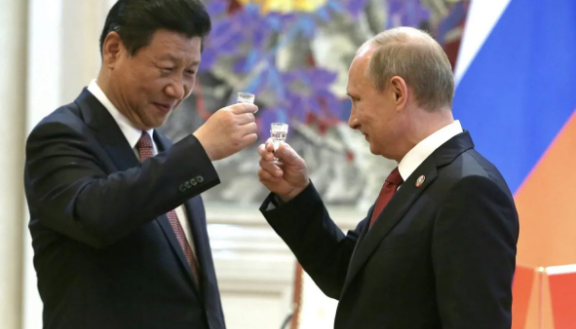
Roving Periscope: Why does Macron believe “the worst is to come” in Ukraine?
Virendra Pandit
New Delhi: A week after the Russian invasion, which has failed to yield quick, tangible results despite wanton destruction in Ukraine, what makes French President Emmanuel Macron believe, after his 90-minute-long conversation on Thursday with his Russian counterpart Vladimir Putin, the “worst is to come”?
According to media reports, citing an aide to the French President, Macron believes that Putin appears intent on seizing “the whole of Ukraine. “The expectation of the President is that the worst is to come, given what President Putin told him.”
“There was nothing in what President Putin told us that should reassure us. He showed great determination to continue the operation,” the aide said, adding Putin “wanted to seize control of the whole of Ukraine. He will, in his own words, carry out his operation to ‘de-Nazify’ Ukraine to the end.”
“You can understand the extent to which these words are shocking and unacceptable and the President told him it was lies,” the aide said.
Macron also urged Putin to avoid civilian casualties and allow for humanitarian access. “President Putin replied he was in favor but making no commitments,” the aide said, adding that Moscow had denied the Russian military was targeting civilian infrastructure in Ukraine.
Clearly, neither the stiff and unexpected resistance his massive troops’ deployment and attacks faced in Ukraine, nor the West and its allies’ half-hearted sanctions, have stopped a determined Putin from escalating the war.
The reason may be his calculation that a ‘divided’ West, which inherits the guilt and prolonged memories of the Second World War, and now also tamed with the Russian show of nuclear deterrent, would refrain from directly joining the war.
After Russia attacked Ukraine on February 24, the West has merely announced half-measures and only showed its inability, until now, to contain the conflict. It shows Russia had carefully prepared for the emerging economic realities prior to launching the war.
Indications that the West is still hesitant came from Washington. In his first, lackluster State of the Union address on Tuesday, President Joe Biden only reiterated the resolve to check Russian aggression in Ukraine, highlighted the Ukrainian defenders’ valor, and applauded a newly reinvigorated Western alliance that has worked to rearm the Ukrainian troops and cripple the Russian economy through sanctions. He also warned that, without consequences, Putin’s aggression wouldn’t be contained in Ukraine.
As he spoke, the Russian forces further escalated their assault on Ukraine.
It now emerges that Moscow had already hedged against the West’s moves.
For, Russia’s Kremlin-controlled energy giant Gazprom announced this week it has signed a contract with China to design a massive natural-gas pipeline to deliver up to 50 billion cubic meters (1.8 trillion cubic feet) of natural gas per annum, via Mongolia. The contract is about design and survey work as part of the construction of the Soyuz-Vostok gas pipeline. This link could offer Russia better access to alternative markets in the East, as energy majors in the West may divest themselves of Russian interests.
The Soyuz Vostok is also known as the Power of Siberia 2 pipeline. The Power of Siberia 1 pipeline has been pumping natural gas from Russia to China since 2019 as part of a 30-year, $400 billion deal, the media reported.
This biggest-ever deal would divert Russian gas from Europe to China, potentially shield Moscow to a large extent from the financial impact of Western sanctions and also starve the Continent, particularly its largest economy, Germany, of affordable energy.
Interestingly, the West has not yet banned Russian energy imports, and Europe continues to get about 40 percent of its natural gas supply from Russia, even after the invasion of Ukraine stated on February 24.
Beijing is delighted. It has not criticized Russia, nor called Moscow’s actions an invasion. China is already Russia’s biggest trade partner for exports and imports. It bought a third of Russia’s crude-oil exports in 2020. China supplies Russia with products like phones, toys, and clothing.
Europe, heavily dependent on Russian energy, is in a quandary. Germany halted plans for the Nord Stream 2 pipeline, designed to carry gas between Russia and mainland Europe. But the German energy firm E.On rejected calls to shut down this pipeline, which pumps Russian natural gas to Europe.
But it’s not all gas. Russia has more aces up its sleeve!
So, the Russia-Ukraine war may drag on…
